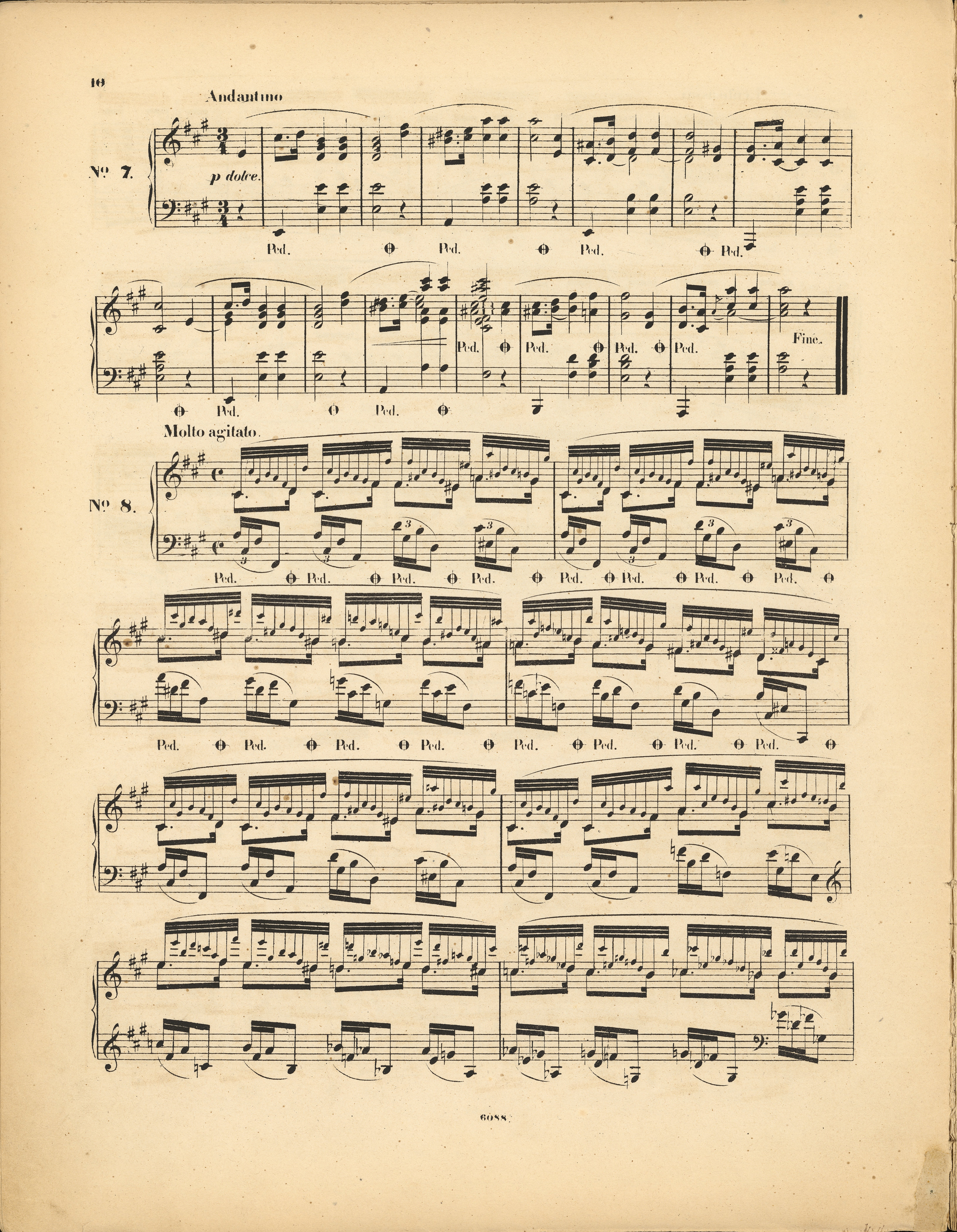Op. 2, Variations in B♭ major
Op. 10, 12 Etudes
Op. 11, Concerto in E minor
Op. 21, Concerto in F minor
Op. 22, Polonaise in E♭ major
Op. 24, 4 Mazurkas
Op. 25, 12 Etudes
Op. 26, 2 Polonaises
Op. 27, 2 Nocturnes
Op. 28, 24 Preludes
Op. 30, 4 Mazurkas
Op. 35, Sonata in B♭ minor
Op. 50, 3 Mazurkas
Op. 63, 3 Mazurkas
Op. 64, 3 Waltzes
(Op. 4), Sonata in C minor




Op. 28 No. 8, Prelude in F♯ minor
There are no accidentals before the last pair of demisemiquavers in A. Therefore, they should be interpreted as c 2 and c3 (the
2 and c3 (the  before the 5th demisemiquaver of the bar is in force), which is, of course, impossible. In this Prelude Chopin took it for granted that the second and last demisemiquavers in each group are an octave higher than the preceding melodic note, thus he marked precisely only the pitch of the melodic notes (cf. b. 1-4). Therefore, there are no doubts that it is the bottom note that is written correctly, c
before the 5th demisemiquaver of the bar is in force), which is, of course, impossible. In this Prelude Chopin took it for granted that the second and last demisemiquavers in each group are an octave higher than the preceding melodic note, thus he marked precisely only the pitch of the melodic notes (cf. b. 1-4). Therefore, there are no doubts that it is the bottom note that is written correctly, c 2, and the inaccuracy concerns the top note, which must be a c
2, and the inaccuracy concerns the top note, which must be a c 3. Interestingly enough, the absence of a
3. Interestingly enough, the absence of a  restoring c
restoring c 3 was not noticed in any of the remaining sources, even in GE2, in which a cautionary
3 was not noticed in any of the remaining sources, even in GE2, in which a cautionary  was added before c
was added before c 2.
2.
Compare the passage in the sources »
category imprint: Interpretations within context; Differences between sources; Editorial revisions
issues: Omissions to cancel alteration, Errors of A
notation: Pitch

